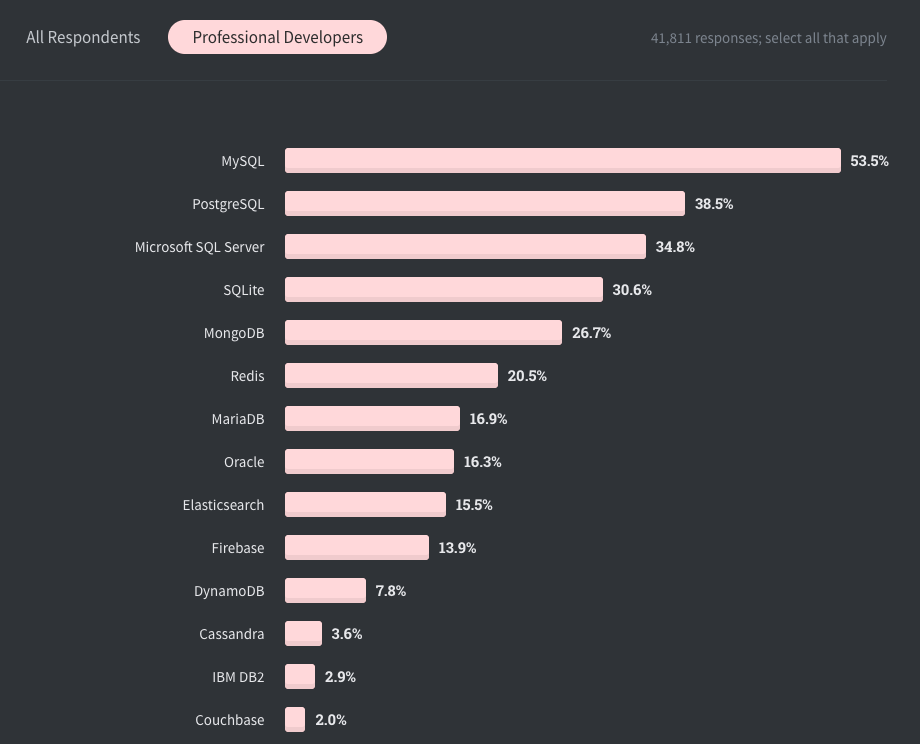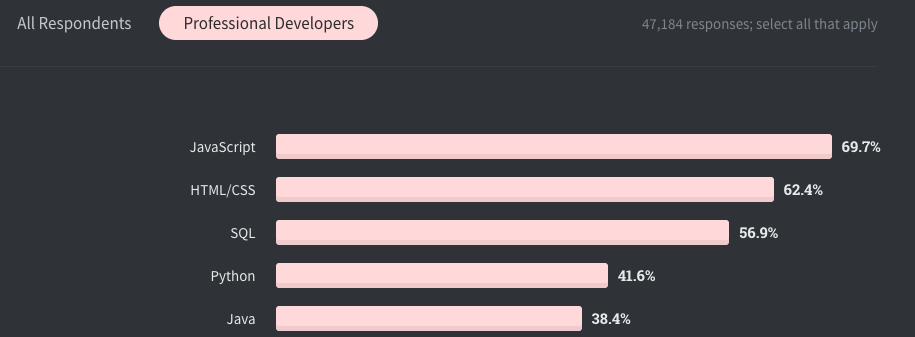What can you learn about 2020 database trends from StackOverflow's latest survey?
The survey results from StackOverflow's developers survey are already here, and we can now declare the most popular databases for 2020.
Without further ado, let's look into the results:

So what can we learn from these results?
- The most popular database is MySQL, and not by far comes PostgreSQL. That is surprising, as PostgreSQL was 3rd place two years ago. This year, more than half of the respondents (53.5%) are using MySQL. It seems RDBMS databases and specifically MySQL are here to stay for at least few years ahead.
- PostgreSQL is gaining lots of traction in the last few years (38.5%). Developers working with Postgres are very pleased with the product, both in terms of capabilities and performance. We believe this trend will continue and we'll see larger usage rates next year.
- SQL Server has a large market share, but it seems to decrease (34.8% vs 41% two years ago). Microsoft is pushing SQL Server with their Windows Servers, and that way gaining significant market share. In addition, recently Microsoft introduced some AI capabilities in SQL Server over Azure, so we believe it will gain them some more new customers wishing to optimize their database using some artificial intelligence.
- RDBMS databases are still significantly more common than NoSQL databases such as MongoDB.
- Relatively new technologies are starting to gain market share in the databases world - Redis (first release at 2009) and Firebase (first release at 2011).
- Almost 1/3 of all programmers (30.6%) are using SQLite, which is a lite SQL database which is based on a single file. This database has large popularity in small desktop applications and applications where an embedded database is required (for example, mobile phone apps).
- It's amazing to see that SQL is the 3rd most popular programing language and even more popular than Python and Java.

To summarize, RDBMS and MySQL are still very popular among tech companies and programmers. NoSQL databases are probably not here to replace those needs, but to be used to solve different requirements.
Disclaimer: charts and data copyrights are of StackOverflow. EverSQL is in no way associated with StackOverflow.



